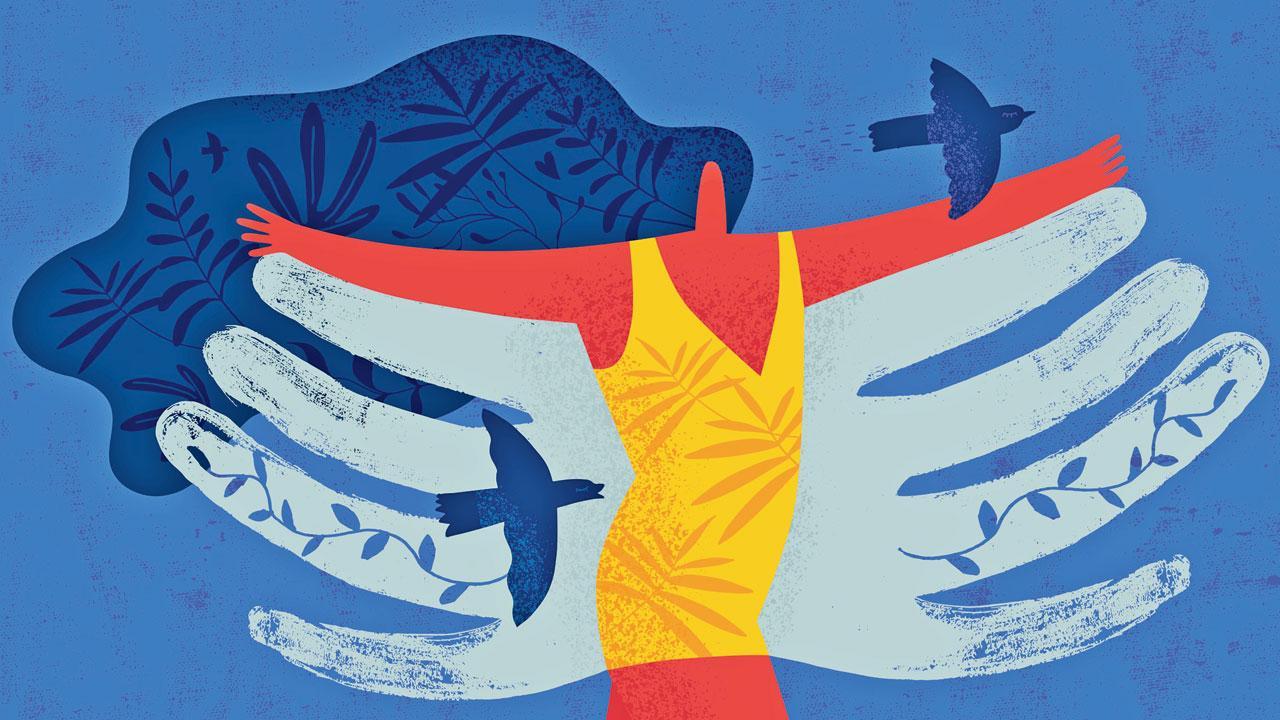April is Dalit History Month, the month of Dr Ambedkar’s birth anniversary. Here’s our curated reading list powered by Dalit women authors

Urmila Pawar’s We Also Made History: Women in the Ambedkarite Movement (1989) is one of the earliest books to document the contribution of women in Dr BR Ambedkar’s Dalit rights movement. Representation Pic
Some of the most powerful Dalit writing has come from voices like Bama, Urmila Pawar, Shantabai Kamble, Baby Haldar — writing against the grain with intelligence and grit. This month, in honour of Dalit History Month, which celebrates the contributions of Dr Bhimrao Ramji Ambedkar, we’ve handpicked five books written by remarkable women, each offering a sophisticated perspective into the negotiations they’ve made to fight the indignities of everyday oppression. Each book carries beauty and hope for a compassionate society and a prayer for safe and
harmonious living.
Viramma (Verso Books)
Viramma narrated her story to Josiane Racine, while the latter was conducting research into popular songs and culture in the southern parts of India. Viramma worked as an agricultural labourer “bak[ing] in the sun” and later, as a midwife. She shared personal stories, opening up slowly to Racine over a few years. For instance, we get to know about her marriage at the age of 11, and the loneliness she felt on the day of her wedding as the rest of the family around her celebrated. She called marriage an act of “kidnapping”. Through Will Hobson’s English translation of Racine’s transcription in French, we get to understand not only Viramma’s story, but that of many Dalit women within rural settings. We gauge the nature of their exploitation and their navigation to find self-respect through it all.
Blue is the Colour I Choose by Tanya Singh (Panther’s Paw Publication)
Over the last few years, Panther’s Paw Publication, an independent publishing organisation based in Nagpur run by Yogesh Maitreya has produced many works that open a dialogue into anti-caste narratives, including the writings of Dr BR Ambedkar as well as Sangeeta Mulay’s relationship with Savitribai Phule. The publication has been instrumental in giving a platform to emerging poets like Tanya Singh. Singh’s words reside in soft wisdom. “Often, the biggest storms are brewed/through the collectness of within/by simply being...and not withering away,” she writes. Her observations also highlight a lack of consciousness among the savarna communities about the inequalities present at various levels, as they go about airing “the grand names of their predecessors…their poojas, gods, gurus…family heirlooms”.
The Stomach that Chewed Hunger and Other Stories (Zubaan Books)
Bama (Bama Faustina Soosairaj) has been one of the most significant educators and writers in the country. This book comprises 12 short stories written by Dalit women edited by Bama and translated with sensitivity by Ahana Lakshmi. There are stories that range from themes of dreams to curtailment. There is a heartwarming story called The Child that Cries. Through the tale, P Sivakami shows us, from close quarters, the value of labour, and the sweat and love that a couple put into farming their land. Their newfound wealth, fruit of their hard work, makes their neighbour, Sughavanam, owner of an inherited property, envious. He finds it impossible to accept that a family belonging to the oppressed caste would aspire to move beyond the otherwise imagined roles, jobs, and level of education that they’ve been pushed into. Similarly, each story depicts a different dimension at which conflict persists.
Toote Pankhon Se Parwaz Tak by Sumitra Mehrol (The Marginalised Publication)
This is an autobiography written by a disabled, Dalit woman who opens a personal corner of her life to the reader. At a young age, the polio infection left her with a disability. Mehrol writes about how that affected her life in more ways than just the physical movement. She found it extremely difficult to be accepted within social circles. Through her anecdotes about her interactions with neighbours and classmates and an unfair treatment by her own family, society’s intolerance for difference glares at us. While reminding us about the impact of such exclusion on the ones excluded, she also narrates the story of how, despite this, she worked towards soaring high academically, attaining a PhD in Hindi Literature, and rising in her career.
Dalit Lekhika: Women’s Writings from Bengal (Stree-Samya)
The anthology, edited by Kalyani Thakur Charal and Sayantan Dasgupta, comprises stories and poems by Bengali Dalit women. It also carries a memoir-like essay by Charal. In a session with Dalit Camera, a news website that documents India from the perspective of marginalised communities, Charal shared how she collected these works and put them together because there weren’t any anthologies where one could find Bengali stories and poems that spoke about the experience of caste. Usually, they were scattered across various magazines. As she rightly states, these are stories written by women who work tirelessly through the day, and sit down to write about their experiences at night by the light. These are the “true creators of Dalit literature of the future”, she says as she hopes their work inspires more women to write. The collection can be paired with Lily Halder’s life writing Bhanga Berar Panchali (The Litany of a Broken Fence).
Log on to: All titles available at leading e-bookstores
 Subscribe today by clicking the link and stay updated with the latest news!" Click here!
Subscribe today by clicking the link and stay updated with the latest news!" Click here!








